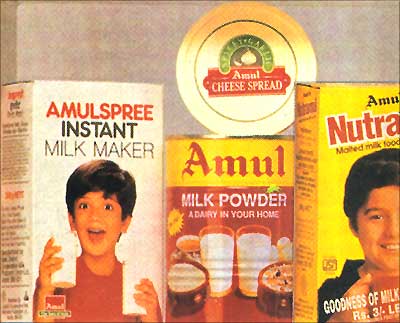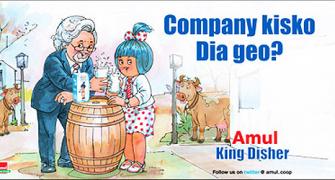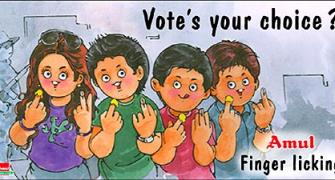
The homegrown brand expands its presence in the mithai market, hopes to cash in on changing customer preferences
The halwai across the road might be in for some competition as organised players claim that there is a clear shift in consumer preference from loose mithai
to branded, packaged sweets. In fact step into any of the major airports in the country and it is impossible to miss the rush at stores for branded mithais by homegrown regional brands.
Now, with the country’s largest dairy cooperative Gujarat Cooperative Milk Marketing Federation all set to launch packaged rasgullas and rasmalais, the market is set to get a further boost.
R S Sodhi, managing director of GCMMF which owns brand Amul, says, “We realised that the demand for quality Indian desserts is high, there is demand for hygienically prepared standardised sweets.”
Amul already has Indian sweets like shrikhand and basundi in its portfolio, but the Indian sweets segment contributes a meagre sum of Rs 1,500 crore- (Rs 15-billion) odd to its Rs 23,000-crore (Rs 230-billion) turnover.
However, the company is keen to grow the numbers here and says that the segment is clocking a steady 15-20 per cent compounded average growth rate.
With the new products, Amul expects to match that.
The traditional Indian desserts market is around Rs 40,000-45,000 crore (Rs 400-450 billion), informs Angshuman Bhattacharya, managing director with Alvarez & Marsal, a global professional services firm that offers business advisory services.
But packaged sweets account for a small percentage of this market.
“The packaged market size is around Rs 3,500 crore (Rs 35 billion).
"While a definite shift from unorganised to organised is being witnessed, not all products have high shelf life or can be industrially produced and hence, scaling up could be difficult.
"However, the potential is huge, and in the long run conversion towards organised players is imminent,” says Bhattacharya.
One of the leading players in the segment, Bikanervala agrees that the branded segment is growing at a fast pace, not necessarily because the market is firing up, but because there is a steady conversion among consumers from unorganised to organised segments.
Amul’s entry has cheered up players like Bikanervala who feel that the entry of a large player would expand the market.
Deepta Gupta, corporate executive vice president of Bikanervala Foods, which owns the Bikano brand says, “No major Indian sweets player can afford to spend big on advertising.
"However, as players like Amul enter and advertise Indian sweets, it is the segment that would ultimately benefit.”
Bikanervala, has not spent heavily on branding and advertising or for that matter run a campaign on the ‘healthier’ aspects of traditional sweets, Gupta informs.
The Indian sweets segment, however, faces tough competition from chocolates and confectioneries which is estimated to be a market worth around Rs 11,000-12,000 crore (110-120 billion).
Gupta says that with Mondelez India actively advertising during festivals, chocolates have emerged as a serious competitor for festival gifting.
Gifting is a key driver for demand for the branded Indian sweets industry.
Almost 50 per cent of Bikanervala’s sales are during festivals.
“Moreover, it is also a question of availability.
"Chocolates are available at the corner store, but for sweets one has to visit a sweet shop.
"We are thus trying to increase our distribution reach, and have plans to tie up with modern trade for this,” he added.
The traditional sweets player is trying to up its game by going in for trendy packaging solutions and adding innovative options in its product portfolio.
Another player that has invested heavily in the segment is Haldirams, its stores at the airports are doing brisk business.
Many retail chains in metros have also increased their shelf space for homegrown mithai brands.
Bikanervala has 60 stores in India and abroad.
It plans to double the number of overseas stores over a short period of time, and enter new territories (Southern states) in India, a sign perhaps of the growing demand from customers in these regions.
“We are planning to start a factory in one of the Southern states soon. We are already running at 100 per cent capacity at our Haryana plant, because our exports demand is steadily rising,” Gupta says.
While Gupta and Sodhi both feel that the demand for hygienic, packaged sweets is on the rise, Bhattacharya felt otherwise.
“Hygiene is not necessarily the most important factor driving the consumption shift from unorganised to organised. Consumers prefer packaged sweets for gifting on festivals and other occasions.
"In fact, almost, 50-70 per cent of sales of packaged sweets happen during festive season,” he says, adding that it is not that the segment is clocking month-on-month growth as such.
If Amul is to get to its target, it will have to change that.


.jpg)






.jpg)